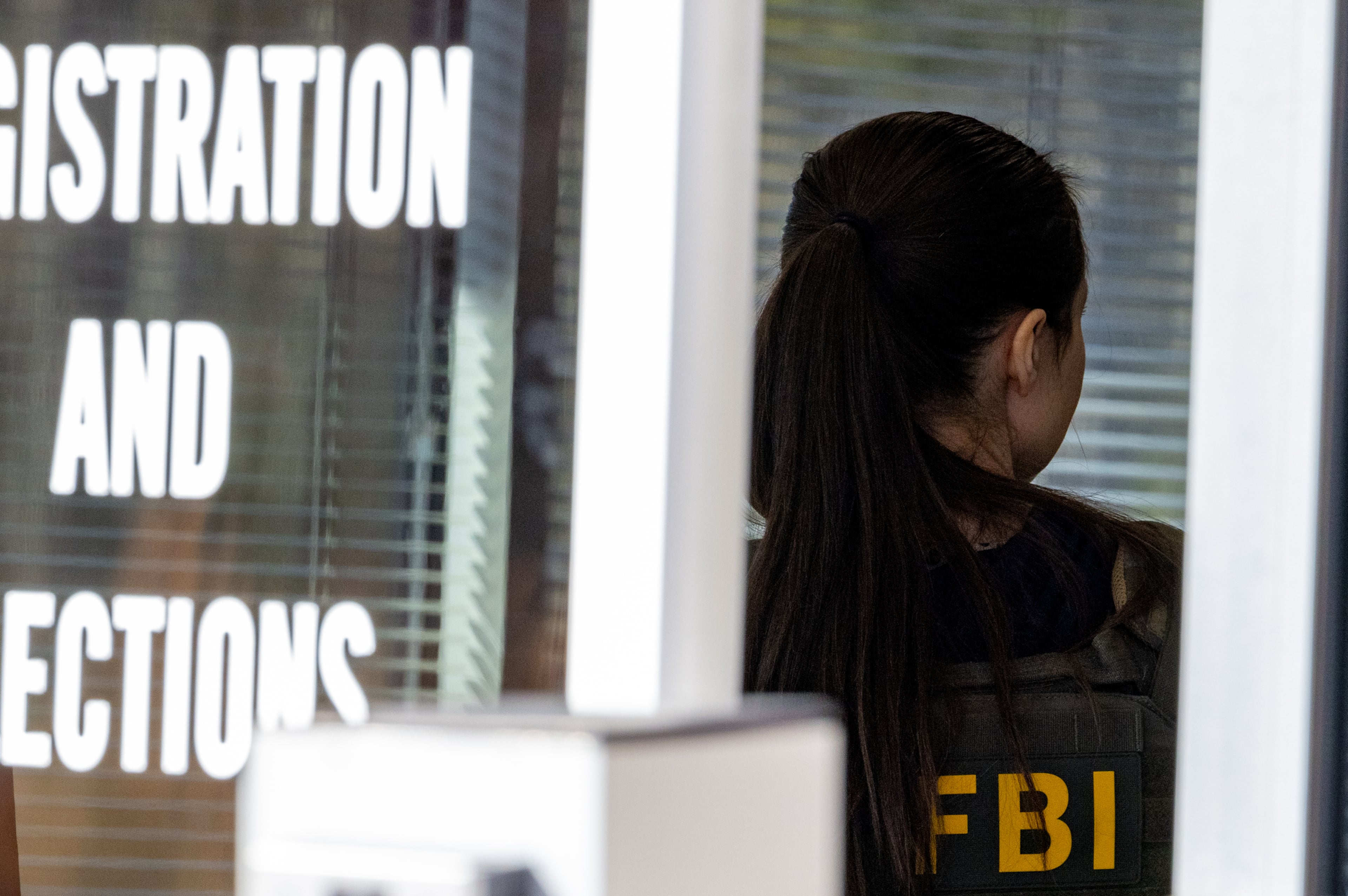What to know about Georgia’s RICO law
Former President Donald Trump and 18 others were indicted in Fulton County last month on racketeering and additional state charges. This week, Georgia’s attorney general used the same state racketeering law to indict 61 activists protesting Atlanta’s planned public safety training center in DeKalb County.
Here’s what you need to know about Georgia’s version of the Racketeer Influenced and Corrupt Organizations Act, known as RICO:
How it works
Georgia’s RICO law was put on the books in 1981. It was modeled after the federal version Congress enacted to put away Mafia bosses who had traditionally evaded criminal prosecution by tying them to the actions of their underlings who carried out crimes on their behalf.
Prosecutors must show a pattern of racketeering activity, carried out by two or more people seeking to control or protect an interest in some sort of enterprise. The enterprise could be something like a crime family or a gang, or it could be a property, an interest or an institution — including the presidency or a political campaign.
In the Fulton case, the indictment alleges that Trump and 18 others — along with 30 unnamed, unindicted co-conspirators — constituted a “criminal organization” whose members and associates engaged in various criminal activities to further the goals of the enterprise. The goal: to overturn the results of Georgia’s 2020 presidential election, which was won by Democrat Joe Biden.
Georgia’s RICO statute lists more than 40 so-called predicate crimes or acts that, when considered together, could qualify as a pattern of racketeering activity.
Among the predicate acts listed in this indictment: false statements and writings, impersonating a public officer, forgery, filing false documents, influencing witnesses, computer theft, computer trespass, computer invasion of privacy, conspiracy to defraud the state, acts involving theft and perjury.
A felony racketeering conviction includes a sentence of five to 20 years. It can be a sentence solely of probation, of prison time or a mixture of both. Also, a person convicted of RICO could be required to pay a fine of up to $25,000 or three times the value of money, property or commercial interest a person made through their racketeering activity.
It’s controversial
Georgia’s RICO law defines racketeering more broadly than the federal statute. It also allows a DA to introduce evidence that, without racketeering charges, would not stand on its own as individual crimes. Not only that, but prosecutors can use crimes committed outside of Georgia to prove a wider conspiracy.
In the Trump case, the indictment alleges that the enterprise operated not only in Fulton County, but elsewhere in Georgia and in other closely-contested swing states including Arizona, Michigan, Pennsylvania and Washington, D.C.
Critics say RICO has been overused and exploited by prosecutors for purposes far beyond its original purpose of targeting mob bosses. They say it can also backfire on prosecutors, by overcomplicating cases to jurors.
How it’s been used
In Georgia, RICO has been used successfully against street gangs, an assisted suicide network and a former DeKalb County sheriff who assassinated his political rival. Most notably it was used in Fulton County to prosecute public school teachers.
The latter was led in 2014 by Fani Willis, then a deputy DA, who used RICO to secure 11 convictions and 21 guilty pleas from educators implicated in the Atlanta Public Schools cheating scandal.
“You don’t, under RICO, have to have a formal sit-down dinner meeting where you eat spaghetti,” Willis told jurors in that case. “But what you do have to do is all be doing the same thing for the same purpose. You all have to be working towards that same goal. In this case, the goal (was to) inflate test scores illegally.”
Willis is currently pursuing a separate racketeering case against Young Thug and several other rappers affiliated with the alleged street gang Young Slime Life. The DA also using the statute to prosecute a separate group named Drug Rich, which is accused of burglarizing the homes of celebrities and athletes.
More about the Donald Trump indictment
- Who’s who in the Georgia Trump indictment
- LISTEN: ‘The Trump Indictment’ podcast — ‘The Enterprise’
- Trump, 18 others indicted for trying to overthrow 2020 Georgia election
- READ: Full Fulton grand jury indictment of Donald Trump
- Who is Fani Willis, the Fulton DA prosecuting Trump?
- What to know about Georgia’s RICO law
- Copying of Georgia election data brings conspiracy charges
- Kemp to Trump after indictments: ‘The 2020 election in Georgia was not stolen.’
- How to follow next steps in the Trump indictment from the AJC
- COMPLETE COVERAGE: Trump indictment in Georgia
Get the latest on the Trump indictment with the AJC’s pop-up newsletter. Every Wednesday through the proceedings, our veteran journalists guide you though these unprecedented times. Sign up



